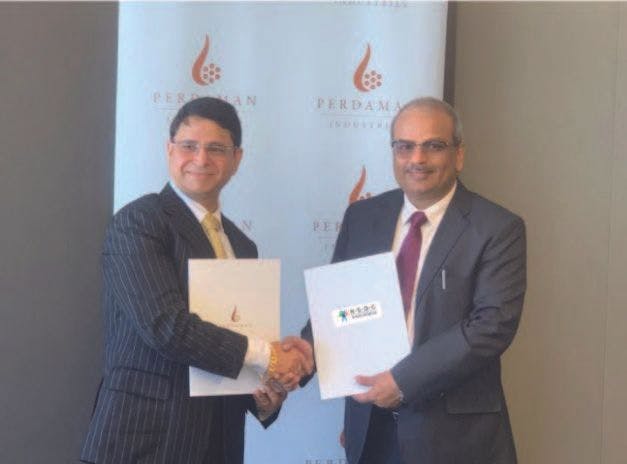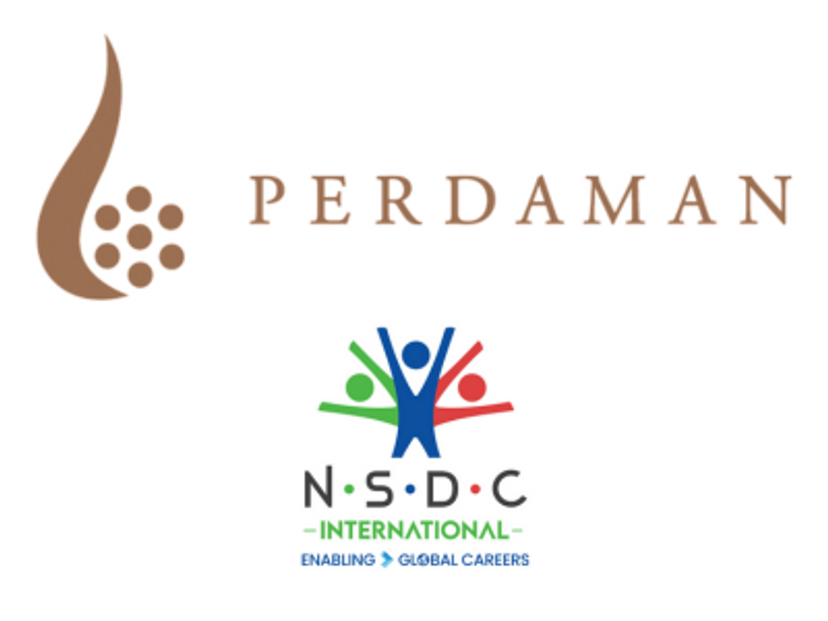Abstract
Post-pandemic, skills and workforce strategies have been central to every company’s business strategy. A recent Skills Survey by the Australian Industry Group (AiGroup) found that while in 2021 only seven percent of businesses were willing to hire skilled migrants, in 2022 this has jumped to a massive 44 percent. These numbers showcase the strong intention to make use of skilled migration to reduce skill shortages. The Australian CEO Survey suggests that finding and developing more skilled people locally and through immigration remains a central workforce strategy for Australian companies today, considering 90 percent of businesses expect to be affected by staffing shortages in 2023. In this context, Perdaman, a multinational company based in Perth, Western Australia, with a long-standing track record in various industries such as Renewables, Energy, Immigration, Capital raising, Offshore Recruitment, Fertilisers and Pharmaceuticals has established an exclusive partnership with Indian government’s National Skills Development Corporation International (NSDCI) to become a gateway to Australia for Indian skilled and business communities. The partnership is operating on the vision, of offering an exclusive platform to address Australia’s high skills shortage currently impacting economic activity by matching Indian skilled professionals with Australia’s economic growth requirements. The partnership aspires to transform the bilateral trade relationship through talent and finance capability. This case study shares Perdaman’s approach in this sector, and how companies can step up to offer solutions.
Introduction
Skills shortages, understaffed, turnover, not finding the right talent – have been a common issue within Australian business circles recently. The number of occupations experiencing skills shortage in Australia has almost doubled over the past year to reach a “staggering” level. The National Skills Commission’s annual update of the skills priority list, shows there are 286 occupations with national shortages, compared with 153 in 2021. Newly listed occupations include dentists, paediatricians, a range of surgeons, specialised nurses, and intensive care and emergency medicine specialists. Teachers – primary, secondary and special needs – are also newly listed. The five most in-demand workers – based on job vacancy data – are registered nurses, software and applications programmers, aged, disabled and child carers and construction managers. Other occupations on the list include technicians and trade workers, electricians, carpenters, chefs and mechanics, machinery operators, drivers and labourers, and community and personal service workers. The skills priority list is used to help shape government policy on training and migration.
Perdaman, a multinational company based in Western Australia with its involvement within a diverse range of sectors and markets, from investments in fertiliser production to help farmers produce crops to the ownership and management of shopping centres hubs; from the production and distribution of pharmaceuticals to migration services and advanced energy solutions, is a company that has been innovating and actively seeking out new opportunities.

Since October 2022, the international arm of the NSDCI entered into a partnership with Perdaman’s recruitment arm called Perdaman Global Services (PGS), to create an interface between Indian skilled youth and market opportunities in Australia, a step towards India’s national vision to make the country the skills capital of the world. This partnership will enable India’s skilled workforce get work opportunities in Australia across sectors like manufacturing, hospitality, agriculture, renewable energy, and electric vehicles. The agreement empowers the skilled Indian youth to connect with opportunities in Australia, gain global exposure and contribute to the overall well-being of the world. A priority, aligned with India’s vision of Aatmanirbhar Bharat which is about building self-reliance along with contributing to global good.
India Strategy
Since 2007, skills development has been an urgent policy priority for India. The Government of India (GoI) has initiated a series of reforms to enhance the skills and employability of youth. The government was aware that with over 70 percent of the population under 35 years of age, a new emerging workforce ecosystem, high skills shortages, and low training capacity – a dedicated policy framework was needed for skills development and entrepreneurship, to drive growth and enhance productivity. This led to the launch of the ‘Skill India’ program in 2015, which aimed to train 400 million young Indians by 2022. The unique features of these reforms have been a growing role played by the private sector.

India’s private sector is an important actor, in the skills training ecosystem (as a trainer or employer), however the narrative was shifted with the private sector being elevated to becoming a partner of the state, to collaborate and strengthen India’s skills development ecosystem. Institutions like the National Skill Development Corporation (NSDC) were set up as public private partnerships (PPPs) to drive skills reform in India, deepen and expand private sector engagement.
NSDC was established in 2008 as a public private partnership, 51 percent equity in the partnership is held by the private sector (represented through a range of industry associations) and 49 percent equity is held by the GoI. The private sector, as the majority stakeholder, showcases its significant importance and role in the ecosystem as a catalyst for skills training. Since inception NSDC has trained over 30 million people through its collaboration with training partners pan India.
NSDC International (NSDCI) is a wholly owned subsidiary of NSDC, dedicated to advancing the objectives of Skill India International. Its mission is to position India as a global hub for top-tier talent, offering premier employment opportunities to Indian citizens worldwide, facilitating career mobility for overseas Indians, and fostering an internationally recognised high-quality skills ecosystem. NSDCI plays a pivotal role in establishing the necessary infrastructure and cultivating domestic and international partnerships to facilitate overseas employment through tailor-made programs aligned with global job requirements and international standards. Moreover, NSDCI capitalises on NSDC's extensive knowledge base and hands-on learning to provide specialised technical services for skill development. The organisation also conducts a variety of capacity-building and knowledge-sharing workshops, with a particular emphasis on ensuring training standards align with emerging priority sectors like clean energy.
“Perdaman has been running a pharmaceutical manufacturing facility in India since 2000. The National Skills Development Corporation International was introduced to Perdaman in 2020 by the Consul General of India in Perth, Ms Dantu Charandasi. The introduction was initiated on the basis that Perdaman will recruit highly skilled candidates once selected for employment in Australia from India’s NSDCI.” – Vikas Rambal, Chairman, Perdaman
“Our business strategy to enter India’s recruitment/education/IT/Entrepreneurship industry was to do a joint venture/or preferred partnership agreement with NSDCI, Perdaman truly believes that this relationship must work to create a successful partnership.”
Perdaman’s strategy was devised after extensive discussions with multiple stakeholders including the NSDCI team, the Consul General of India, Perth and the Department of Jobs, Tourism, Science and Innovation (JTSI). The strategy was timely and in congruence with the aspirations of the Australia-India Economic Cooperation and trade agreement (AI-ECTA) on migration and mobility.
“Perdaman’s initial strategy was to work with 6 Training Partners in India and recruit from them, however, the training partners’ minimal experience in the Australian market, led our first cooperation agreement to fail. The second agreement was executed with NSDCI on the basis that NSDCI will recruit highly skilled candidates for Perdaman in India.”
“The internal stakeholders included me, our recruitment and migration teams. Perdaman Global Services are recognised in Australia for addressing skills shortages, bringing highly skilled candidates from Philippines, Zambia and PNG to Australian companies. This business model is being implemented into NSDCI as our first trial of the partnership.”
The collaboration will also provide students from India/Australia with the opportunity to study in the reciprocal country through various channels and will also explore the scholarship opportunities for students from economically weaker backgrounds.

“While India has a huge network of training institutions skilling millions of youths every year, Australia is facing an acute shortage of skilled workers. As a result, there is an urgent need to create an enabling and facilitating environment to benefit both countries.” – Ved Mani Tiwari, CEO, NSDC & Managing Director, NSDC International
“It is my firm belief that this partnership will not only make the process of international mobility smooth by removing any bottlenecks and procedural challenges but also meet the aspirations of Indian youth to earn a livelihood in foreign countries.”
“In June 2022, a mandate of 100 Nos (Drill fitter 5, HD Fitters 54, Chef 6, MC Truck Drivers 25, Machinists 10) was given as a pilot, further, PGS has shared the demand projection of 620 Nos and a live mandate of 80 Nos (across various sectors).” – NSDCI
Seeing The Future
NSDCI and Perdaman’s decision to establish the office in Western Australia (WA), is a testimony to WA’s growing relationship with India. 110-member ‘Invest and Trade’ business delegation visited India in 2022, driven by a dominant emotion of engaging with the aspirational market proactively. In 2021, India was WA’s seventh largest trading partner with total trade valued at $4.6 billion, WA exported $3.2 billion of goods to India which accounted for 17 percent of total goods traded between Australia and India.
A close partnership between the two nations in the skill sector is expected to grow bilateral trade in the next eight years to $100 billion. The visit of the Indian Minister of Education, Skill Development and Entrepreneurship Dharmendra Pradhan in 2022 focused on deploying Australian Skill Standards & Certification frameworks in India and India’s interest in collaborations with Australia’s skilling institutions. NSDCI works to facilitate the supply of a skilled Indian workforce abroad through harmonisation of skill qualifications, mutual recognition of certificates, accreditation of training providers, etc.

Planning Ahead
Ministry of Skill Development and Entrepreneurship (MSDE) has identified ‘Skill Benchmarking’ as a high priority area in its foreign engagements. However, given the lack of any unified/collective global benchmark standards, MSDE has been discussing the issues bilaterally with selected countries, including Australia, to address Skill Harmonisation and Benchmarking of Job roles, along with a detailed assessment of demand for the skilled workforce.
With India witnessing an unprecedented opportunity in the form of the ‘demographic dividend’ with 60 percent of the Indian population in the working age group, MSDE is working on international mobility of skilled, trained, and certified workers from all over India including rural areas. It has signed business-to-business agreements with organisations from various countries to facilitate overseas mobility of Indian skilled workforce, capacity building of trainers, employer engagements, etc.
NSDCI is aiming to create a network of Skill India International (SII) Institutions by involving government and private institutions to provide global career mobility opportunities to the aspiring candidates in an internationally bench-marked quality skills ecosystem.
The major enablers in this journey will be an effective immigration process, English language proficiency, awareness of how the recruitment process for a developed country is different from other markets, mutual recognition of qualifications and labour market testing for Indian candidates.

